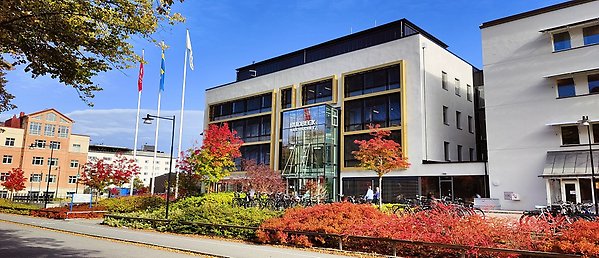The Svedberg seminar series: Prof. Paolo Parini
October 11 @ 15:15 – 16:30 CEST
Theme Inflammation and Ageing, Karolinska University Hospital,
Department of Laboratory Medicine and Department of Medicine
Karolinska Institutet at Huddinge University Hospital,
Prof. Paolo Parini gained his MD degree in 1990 at the Universita’ di Bologna, Italy. In 1994 he obtained his specialization in Gastroenterology and Hepatology (Universita’ di Bologna, Italy). The same year Parini was registered as PhD-student at the Karolinska Institutet, Sweden, under the supervision of Prof Mats Rudling and Prof Bo Angelin. In 1999, he obtained his PhD defending a thesis entitled “Hormonal regulation of hepatic cholesterol and lipoprotein metabolism: effects of estrogen and growth hormone” and since then his research activities are focused on the different aspect of lipoprotein metabolism in humans and in preclinical models.
Network Medicine Approach to Atherosclerosis
During the last several decades non-communicable diseases (NCDs) have dramatically increased deaths globally. One of the most prevalent NCD, atherosclerotic cardiovascular disease (ASCVD) and cardiometabolic disease (CMD), are now major global health threats and socioeconomic burdens. Combined Hyperlipidemia (CH) is the most common form of hyperlipidemia and impacts longevity by promoting ASCVD, CMD. Conventional ‘omics studies, designed to find simple associations between genotype and phenotype in large datasets, are inherently incapable of unraveling the complex pathobiology underlying diseases. Using network analysis, we aim to describe the effects of the peripheral lipoprotein phenotypes of CH described in a multidimensional space by modules of functional interactions, using patients from different existing cohorts to understand whether CH drives accelerated biological ageing, estimated by analysis of the epigenome (DNA-methylation) in conjunction with specific ICD-10 diagnoses and treatments as a function of chronological age. We plan to integrate data of different nature [e.g., genetic, epigenetic, biochemistry, national registries, and electronic health record (EHR), and patient reported outcome measures (PROM) questionnaires]. As initial proof-of-concept, we have created novel multi-source networks in which single-source analyses (i.e., liver transcriptomics and epigenomics) are integrated with biochemical parameters and lipoprotein functionality in combination with Dr. Joseph Loscalzo´s human PPI Personal Protein I. Patients were from the Stockholm Study, in non-obese, normolipidemic, gallstone patients (66% female) were randomized to a 4-week treatment with simvastatin 80 mg/day and ezetimibe 10 mg/day, alone or in combination, or to placebo. The first network mining has already indicated a constant and previously unknown interaction between a key gene in cholesterol metabolism and TMBIM6, a transmembrane protein involved in autophagy and cancer information contained in the multi-source networks. Validation studies of this initial finding in going on in Soat2-only HepG2 cells, a unique pre-clinical model which more closely resembles human lipoprotein metabolism created by us.
Host: Olli Kallioniemi, SciLifeLab Director

